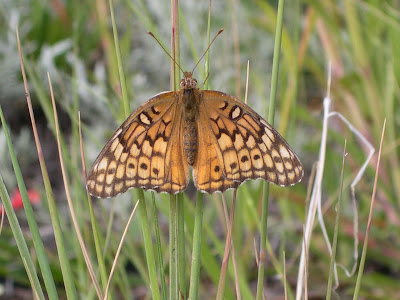At eight o'clock Saturday night, we'll turn off the lights and appliances in our cabin in observance of Earth Hour, a global effort to dramatize the need to take action to slow global climate change. There in tiny Gateway, we'll join millions of people around the globe in sixty minutes of saving energy.

Why join this symbolic effort? Because it forces us all to pay attention to the energy we use. When we turn off the lights in our cabin, no one will likely notice. But when all of Sydney, Australia, went dark last year on the first Earth Hour, when the lights winked out at the Opera House, the Harbor Bridge, and buildings across the city, it was visible from space. (Check out the video at Earth Hour.)
Switching off the nonessential lights and appliances for an hour isn't much of a sacrifice, but it is useful in showing us just how much energy we use, and how much of that we actually need. It's an opportunity to change habits and find ways to conserve, as our personal contribution to greening our footprint and lowering the amount of greenhouse gases each of us is responsible for adding to Earth's atmosphere. It's a way to begin to lighten our impact on the planet.
So spread the word, and join millions of people the world around this Saturday night in showing you want to make a difference. Turn out your lights and turn off your appliances from eight to nine o'clock. And turn on your global consciousness.
While you're at it, go outside and look at the stars. The moon won't have risen yet, so the Milky Way should shimmer like a silvery river running across the sky. Looking south, the bright star you see is Sirius, the closest star to Earth, in the constellation Canis Major, the Big Dog. Looking at the night sky is a great way to refresh your sense of wonder, and remember how easy it is to love this living Earth and the galaxy it spins in.
Listen to my podcast this week for more on Earth Hour.
I'll be on the road until April 15, so won't be posting again until after I return. After the find-spring outing, Richard and I will drive US 50, America's loneliest road, to the Pacific Coast, where I'll be doing some research for my next article for Audubon magazine, on how we can "green" death. (Check out "Raising the Roof," my article on green roofs in the current issue.)







